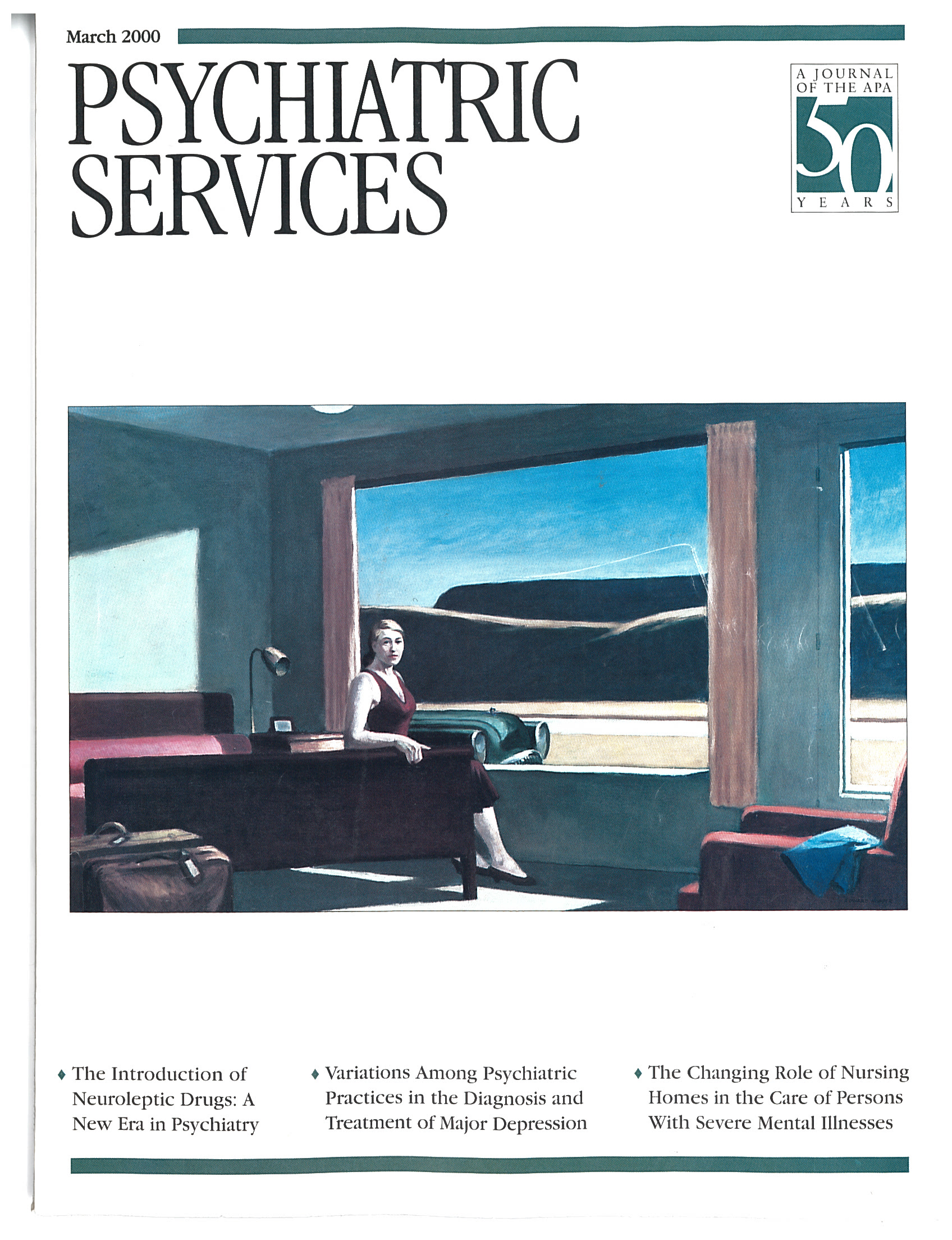•The New Drugs
This month, as part of our 50th anniversary observance, we reprint an article from the February 1956 issue of Mental Hospitals discussing how hospitals of the time were coping with the clinical and administrative issues surrounding the use of neuroleptic drugs, which had become available in the U.S. less than two years before (see page 327). In a related commentary, Robert Cancro, M.D., notes that many of the concerns in the article remain vibrant today. Dr. Cancro views the introduction of drugs as the second of two great psychiatric revolutions in the 20th century and expresses dismay that its collision with the first—the psychoanalytic revolution— "created a lost opportunity to bring together the mentalist approach of the psychoanalyst with the biologic approach of the psychopharmacologist" (see page 333)…. In the Taking Issue column, E. Fuller Torrey, M.D., contends that the concerns described in the 1956 article remain vibrant "because we have not supported the specific research needed to make them less vibrant" (see page 279).
•Treating Depression
Numerous studies have shown that depression often goes untreated, but rarely have regional differences in diagnosis and treatment been examined. Using data from six psychiatric clinics participating in a national outcomes management project, Teresa L. Kramer, Ph.D., and her colleagues found that the proportion of patients who screened positive for a depressive disorder ranged from 73 to 77 percent. However, only 19 to 37 percent of the clients at the clinics were diagnosed with major depression, and the proportion receiving psychotropic medication and psychotherapy differed significantly across sites (see page 336).
•Patient Self-Assessments
Two papers in this issue focus on the feasibility and value of using patient self-assessment instruments in the treatment process. A study by Susan V. Eisen, Ph.D., and associates found that inpatients who met individually with a psychiatric resident to review their responses on the Behavior and Symptom Identification Scale (BASIS-32) felt more involved in their treatment than patients in two comparison groups who received the usual treatment (see page 349). David A. Adler, M.D., and associates tested the feasibility of routine use of a brief health status questionnaire, the Short-Form-36 Health Survey, with outpatients at a psychiatric clinic of a general hospital. They found that the results were reliable, valid, and helpful to clinicians (see page 341).
•Nursing Home Care
Before passage of the Omnibus Budget Reconciliation Act of 1987 (OBRA-87), nursing homes often served as dumping grounds for patients released from public mental hospitals. OBRA-87 mandated that only residents in need of nursing home care be admitted and that active mental health treatment be provided to patients with a primary mental illness. David Mechanic, Ph.D., and Donna D. McAlpine, M.A., used data from two nursing home surveys to examine trends in nursing home admissions of persons with mental illnesses between 1985 and 1995, before and after OBRA-87. They found that although the number of persons with a diagnosis of mental illness increased significantly, most had dementia-related conditions. The number of persons with severe and persistent mental illness substantially declined (see page 354).
•Antisocial Personality Disorder and Alcohol Dependence
Few studies have explored how specific comorbid disorders might drive increases in health service utilization. Megan G. Murray, Ph.D., and associates examined differences in use of substance abuse and mental health services between medically stable alcohol-dependent male veterans with and without comorbid antisocial personality disorder. They found that alcohol-dependent men with a primary diagnosis of antisocial personality disorder used more substance abuse treatment than men with a primary diagnosis of alcoholism and no antisocial personality disorder. Earlier onset of alcohol dependence and a history of comorbid substance-induced dperession best predicted higher rates of substance abuse treatment (see page 380).
Briefly Noted…
• The Datapoints column highlights trends in inpatient care expenditures and length of stay in industrialized countries (see page 295).
• The Practical Geriatrics column summarizes a report from the Group for Advancement of Psychiatry outlining critical areas of research for improving care and treatment of older adults with schizophrenia (see page 299).
• Diagnosis and treatment of extrapyramidal side effects are discussed in the Emergency Psychiatry column (see page 287).
• The books section features reviews of several books on criminal and violent behavior (see page 394).

